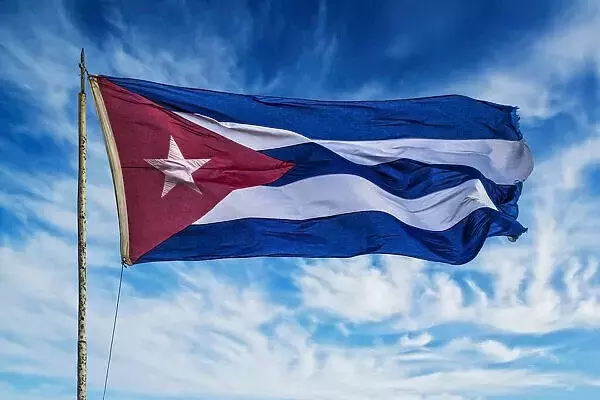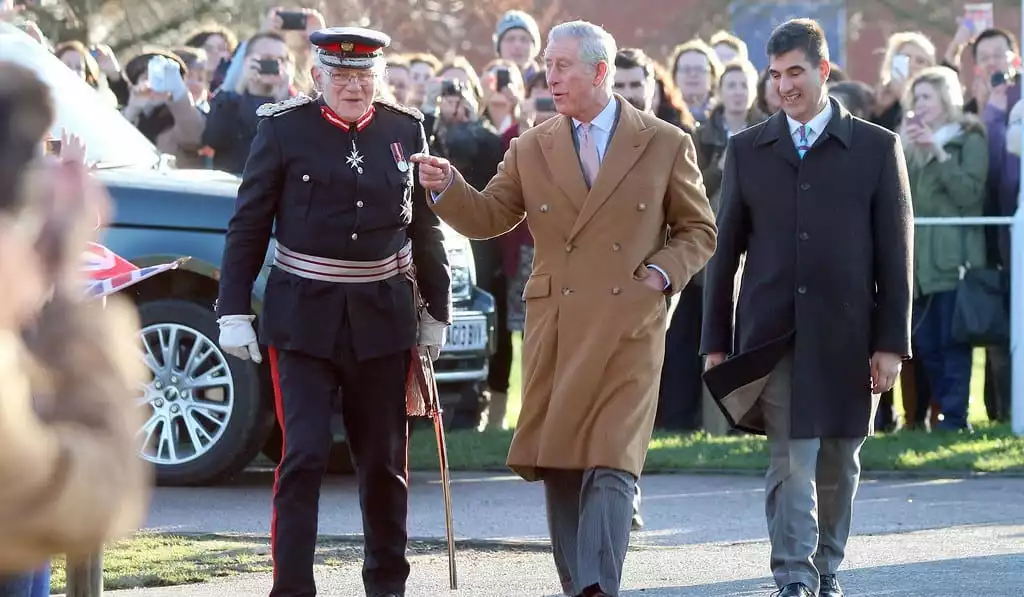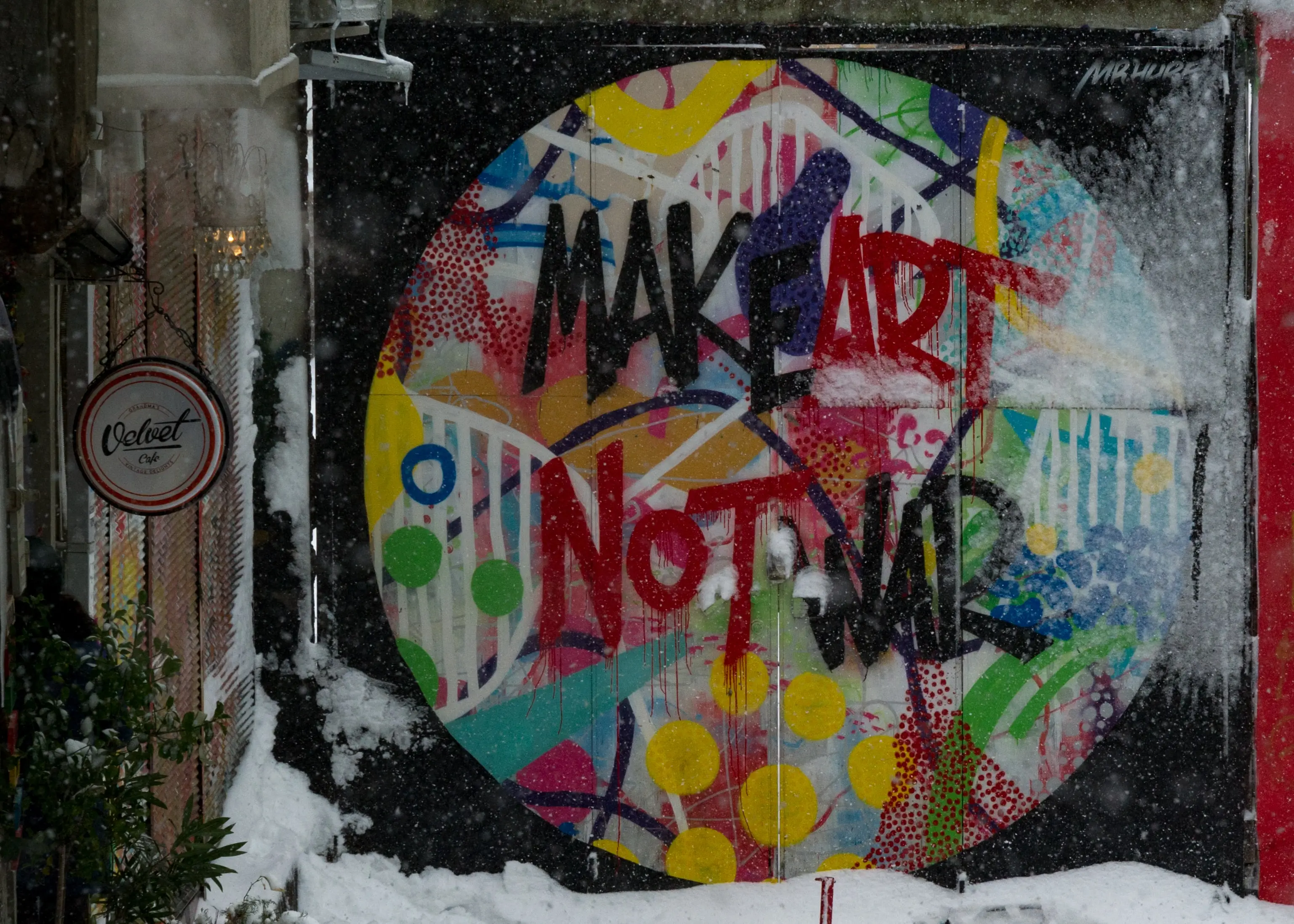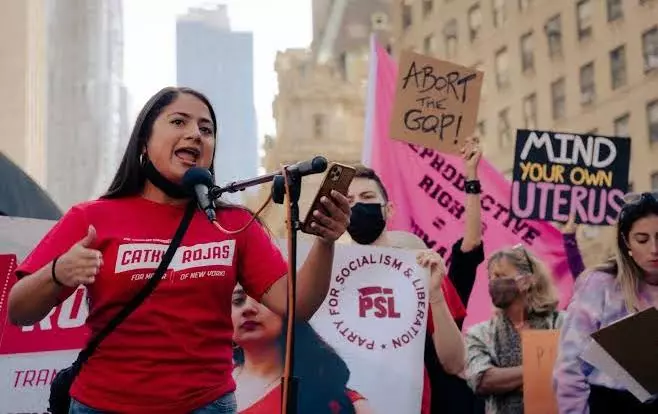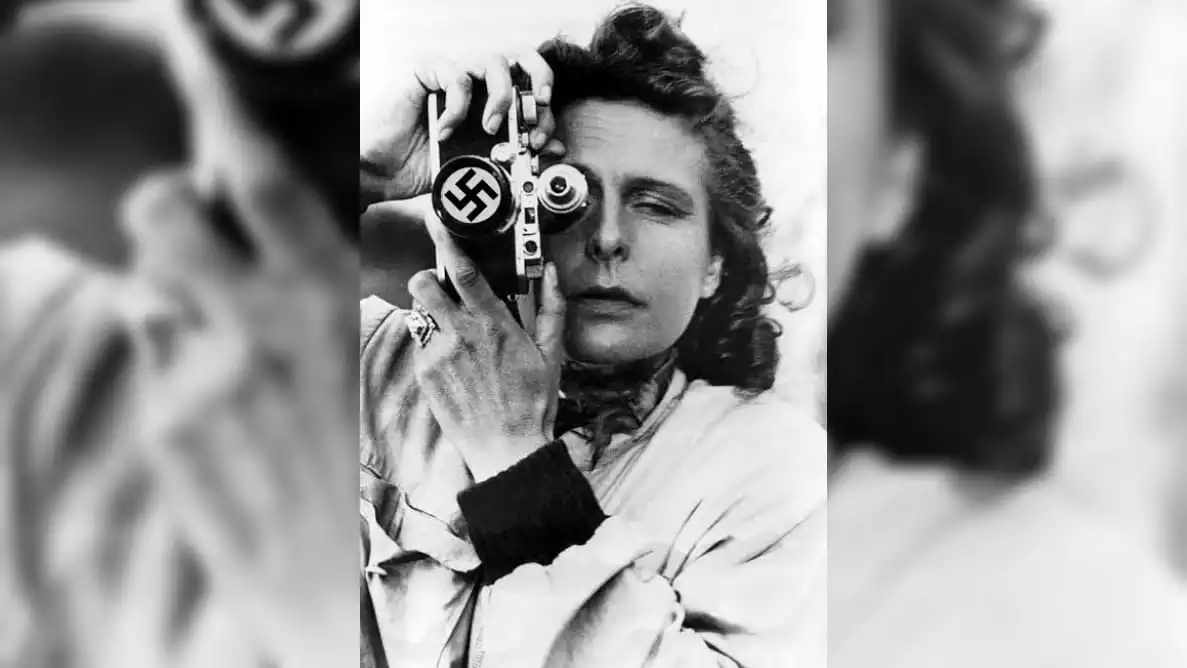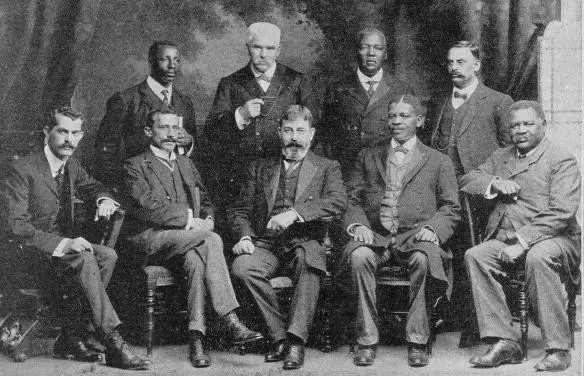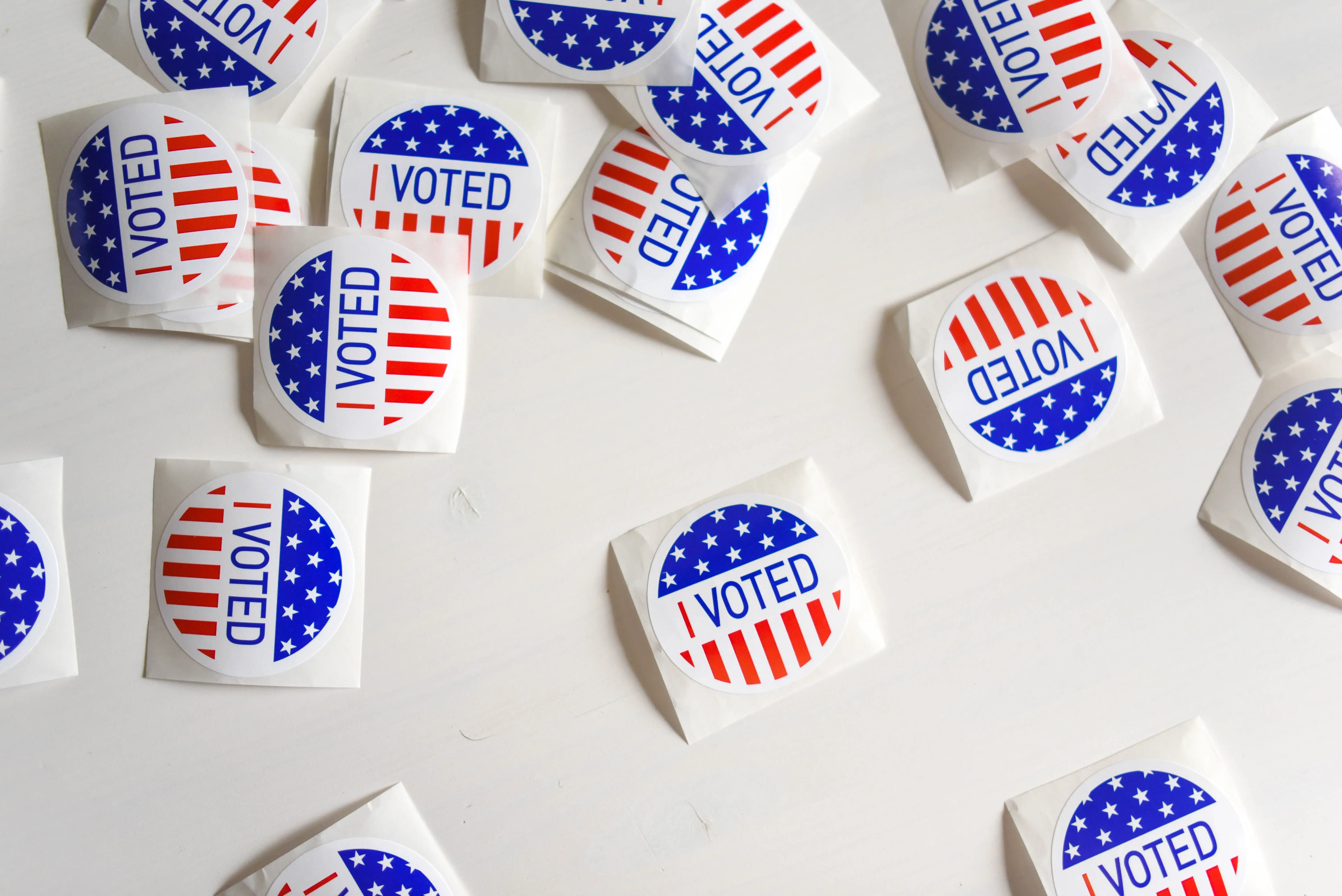Denis Rogatyuk: Today we have the great honor of being with Gerardo Hernández, leader of the Cuban "five heroes" and now the national coordinator of the Committees for the Defense of the Revolution (CDRs). He is a man who has been known as someone who risked his life in pursuit of justice and security for the future of his country. He spent 16 years, three months and four days in prison, simply for the crime of attempting to prevent terrorist attacks against Cuba.
I would like to start the interview with the topic of the Committees in Defense of the Revolution. Can you tell us a brief history of these groups?
Gerardo Hernandez: Well, in 1959, the Revolution triumphed. And since that victory began the plans of the United States to defeat it. They financed organizations, groups, armed bands in the mountains and in the cities. The CIA tried to organize sabotage that affected the people. In 1960, Fidel visited the United Nations and when he returned, the people were waiting for him in the former presidential palace of the Revolution.
And he, from a balcony of that palace, in front of a crowd of 1 million people. And Fidel was explaining in the speech his impressions of his visit in New York. It was a truly memorable trip because of the events that happened there. In the middle of the speech, some firecrackers were lit, with the intention of creating panic. Instead the people present there began to sing the national anthem. And then Fidel said “they're playing with the people and they don't know what it's like to play with the people. We are going to organize this town to find out who the enemies of the Revolution are. There on every block, in every neighbourhood, so that they can't do these things to us and we're going to create a mass organization.”
This speech on September 28, 1960 marked the beginning of the organization. In fact, a few months ago I was in Pinar del Río talking with a man who is already in his 80s, and he told me “I was there present at that speech, that day listening to Fidel and I left there for my province, Pinar del Río and founded in Pinar del Río the first CDR, the first Committee for the Defense of the Revolution.”
From there they began to rise in all the neighbourhoods of the country.
Denis Rogatyuk: So it was autonomous.
Gerardo Hernandez: Exactly. Neighbours chose who they wanted to be their representatives, their president of the CDR. Throughout the revolutionary history of Cuba there is not an event in which the Committees for the Defense of the Revolution did not participate, because the CDRs had a lot to do with the literacy campaign, their participation in the campaigns of vaccination to eradicate diseases, and the recent fight against COVID-19.
We play a very important role. It is an organization that has also been heavily attacked by the enemies of the Revolution. Like all the elements, the opponents of the revolution claim that the CDRs spy on other neighbors, etc., etc. But the facts are that the CDRs engage in revolutionary surveillance, with the self-defense of the residents of our neighbourhood, but it also has a very high social component.
For example, we playe a big role in the reintegration of people who previously served time in prison. When they are released and that they integrate into society right there in their neighborhood, with attention to their families. Through the CDRs we identify the people who are in need a helping hand, of receiving food and medicine.
The CDRs that have a presence there, on every block, in every neighborhood, and there are other initiatives that have characterized us over the years, such as blood donations, organizing the area, collecting raw materials to help the economy.
Now we have just finished an election process and the CDRs play an important role in preparing the electoral records and other stages of the process. We order the voters who live in each place, those who arrive to vote, the people who have passed away, those who are born in another country and those who have moved residence. In addition, we also encourage people to go out and vote. We explain the importance of the elections, we take care of the polling stations, the information that is placed in the places, in short, it is an organization that has to do with practically all aspects of life in Cuba.
Denis Rogatyuk: Can you explain in a little more detail what role the CDRs played in particularly difficult periods in Cuban history, such as the special period of the 1990s?
Gerardo Hernandez: Well the CDRs have been part of every chapter of the Revolution. A few months ago, on the organization's anniversary, a doctor visited us here.
Now, during the Special Period, we also played our role, because the eyes of the revolution in a neighborhood are precisely the CDRs. And if there are people who need more help due to their vulnerability due to the characteristics of a family, it is the neighbors who lend a hand when there is an atmospheric phenomenon when it comes to mobilizing the CDRs together with the Federation of Cuban Women.
The special period, something that was done then and has been resumed now in recent years, is a campaign that we call "Cultiva un pedacito" which is to motivate people wherever there is a piece of land, a patio, a garden and even on the roofs of houses, to cultivate it.
You know the difficulty there is with the issue of food and there are many people who have joined this movement and cultivate in plots on the roofs of the buildings of the houses, places that at a certain time belonged to nobody, or was a plot or a garbage dump, or vectors with rats, etc. So the neighbors came together, cleaned it up and turned it into furrows or where it was then cultivated.
It is a program that has been mocked by the enemies of the Revolution, because, of course, it is inconvenient for them. It is an exercise that, beyond producing food as such, which is already good, also brings unity, cohesion among the neighbours. There are neighbours who in many places barely knew each other and who, thanks to an initiative of this type, have agreed to clean up this place and turn it into a public space.
And well, that already leads to a social function, to a union, to solidarity between neighbors, which of course the enemies of the Revolution do not want and that is why they have been criticizing our program. But it is a program that has been advancing food production and there are also places where progress has already been made on a higher scale, because residents not only produce, exchange among themselves, and donate to schools, donate grandparents' houses. They have also started to dehydrate food to be made and give added value to the products they grow.
There are actually projects throughout the country where a lot of progress has been made.
Denis Rogatyuk: I've heard about this program before, but I didn't know it was a CDR project.
Now, I would like to talk about the threats that Cuba has faced in recent years from US intelligence and its allies. We have seen its methods evolve from the use of terrorism and physical violence in the 1960s, 1970s, 1980s, 1990s and develop into psychological warfare and the use of tactics designed to slowly deprive the revolution of its popular support.
However, the results remain the same. The Cuban Revolution stands firm. What are the main reasons for this resilience?
Gerardo Hernandez: As you know, we made a revolution under the empire's nose and they have never forgiven us for it. That a small island, which was practically a protectorate of theirs, where the economy in the hands of major US corporations, made the revolution trying to show that a different system is possible, that a better world is possible. The fact that we have done it barely 90 miles from their shores is reason enough for them not to forgive us. Even before the triumph, the US was analysing ways to prevent Fidel and his comrades from coming to power and have since tried in every possible way to destroy the Revolution.
Now these methods have been adapting over time. If you read and look for the famous Lester Malory memo, there he explains step by step that the Castro government is very popular and that everything possible must be done to affect precisely its image. He affirms that the economic screws must be tightened so that the people are deprived of their necessities, so that the people take to the streets, so that the people blame the government. When you read the memorandum it seems as if it was written today and it is the script that they have been following with the imposition of the blockade, with all the aggressions and media campaigns against Cuba.
Now it's a different world. There were times when they had to finance a radio called Radio Martí or Televisión Martí and I don't know how many other stations that cost a lot of money to try to penetrate the minds of the Cuban people, and that was much easier to combat.
But now we are in the age of the Internet. Now anyone can receive any type of information on their phone. Thus they have adapted their attacks against Cuba to new technologies. And that is a great challenge. Our boys, young people, students, myself for example, never visit any counterrevolutionary website. However, as soon as I enter Facebook the recommendations for counterrevolutionary pages start popping up. Yet Facebook never recommends a revolutionary site to me. It never recommends El Ciudadano for example.
A lot of the media campaigns have been directed at opinion leaders in Cuba - artists, athletes, well-known characters, wanting to attract them, and add them to that campaign?

We have a saying "the monkey dances for money" and there are those who do anything for money. However, we have artists who one day praise President Miguel Diaz-Canel, but three months later they say that Cuba is a dictatorship. How is it possible that in three months people change your mind? People who until today have been or have never had a political problem have never complained about a political problem. But once they arrive ot the United States they realise that in order to succeed or aspire to succeed you have to define yourself in this way and speak out against the Revolution, which is part of everything, of the same system.
Denis Rogatyuk: But Gerardo, at this precise moment, what are the most notable campaigns and operations that the United States government and the CIA are carrying out against the Cuban Revolution?
Gerardo Hernandez: Well, it would be hard to say, because everything has been thrown against Cuba with no respite. I could mention some of the most absurd and offensive. For example, you know that the Trump administration put Cuba back on the list of countries sponsoring terrorism. For many years Cuba remained on that list with completely absurd pretexts that have varied to the extent that they have become more illogical and absurd.
But during the Obama administration an act of justice was carried out and Cuba was removed from that list, which is also a list that lacks any credibility. Not even US officials believe in that list in relation to Cuba, because they know that it is a list that is used for political purposes.
But since Cuba was added again, this entails a whole series of measures economic and financial measures against the countries that do business with Cuba such as banks. They in turnI cannot continue offering services to Cuba because the law of the United States says that any financial organization that cooperates, that acts in a certain way with a country that supports terrorism, would immediately be sanctioned.
In other words, it is far beyond the fact of being on a list. It is all that this entails which is designed to continue suffocating Cuba economically and financially. That is one of many campaigns, right? Of course, the use of the immigration issue for political purposes, as I have mentioned. That is, they say Cuba is bad:
"Look how people talk, look how they raft, look how they throw themselves into the sea risking their lives." Why don't you look at the Rio Grande or what happens in the Arizona desert? Those who come to the United States fleeing from capitalism are then hunted, and deported.
I was imprisoned with people from several Latin American countries who were detained for re-entering the country. They were caught, deported him then caught again entering the country, and were automatically given ten years in prison. But also, many of these cases are people who entered the United States very young, grew up in the country, hardly speak Spanish, raised their families in the country, have their children, their wives, and have no one, let's say in Mexico or in El Salvador.
Their whole family is in the United States and one day, after 20 or 30 years, they committed a crime or a traffic violation, they realized it was illegal and they are separated him from their wives, their children, and sent to the country where they don't know anyone, and in many cases they don't even know the language.
So that person has no alternative but to cross the desert and enter, risking ten years in prison. In the case of Cubans it is the opposite. If you are Cuban or if you are a Cuban doctor, a professional, you can go to a consulate in any other country and say "I am Cuban, I want to take advantage of the Cuban Adjustment Law" and they guide you to have all the help in the world.
Brain theft is designed to deprive Cuba of the doctors around the world, to steal Cuba's brightest minds and use them with the objective of saying "no, look, look how bad Cuba is, how people throw themselves into the sea, how people leave". In this case, the immigration policy used as a propaganda weapon against Cuba and campaigns are many since the exploitation of our doctor, "Cuban doctors are slaves that they send to other countries”.
They even put pressure on the governments, the administrations of those countries so that they do not accept Cuban doctors. Can you imagine a more absurd and criminal level of obsession than putting pressure on a country's government so that it does not receive Cuban doctors who are going to save lives?, is something really inconceivable. And as these people mention in many other campaigns, because it is a whole propaganda apparatus with millions of dollars devoted to misrepresenting the reality of Cuba and increasing Cuba's problems.
Denis Rogatyuk: Well, the most recent case is the case in Mexico, where United States congressmen put pressure on the Mexican government, and there are many other governments of countries that had to say no to Cuban doctors, even though they really needed them.
Gerardo, and how do you see the leadership of President Miguel Díaz-Canel? What has been his role in this stage of the Cuban revolution compared to the leadership of Fidel and Raúl?
Gerardo Hernandez: In my opinion, not as a leader of the CDR, I have extraordinary admiration for him because he has had a very difficult role, which is what we popularly say, to fill the shoes of the historical leaders of the Revolution.
We, for more than half a century, have lived admiring Raúl and Fidel because they were the fathers of this revolution. And in the case of Díaz, it is the first time that the country is led by a son of the Revolution, not a father of the Revolution. That in itself is tremendously difficult.
Now, if you add to that the fact that imperialism was betting for many years for that moment, from when the generational change came, they tried by all means to kill Fidel, to kill Raúl, to assassinate the historical leaders of the revolution and expedite the fall of the revolution, getting rid of those leaders but they realized they couldn't.
And not for lack of trying, because there is even a documentary called "635 ways to kill Castro", which are the assassination attempts that are registered, but could not carry out. They bet on the biological solution: “When the leaders disappear, the revolution, the new generation, will not be able to continue forward with that banner.”
The time has come for us. It is well known how events unfolded and it fell to our current president, first secretary of the Party, Miguel Díaz-Canel, to continue with that banner. But on top of that, despite the fact that the blockade has intensified, which is also part of the plan, it has suffered a whole series of incidents, natural phenomena, pandemics, inflation.
Therefore, he is someone who I have also had the opportunity to be close to and I have great admiration for him as a person, great admiration as a revolutionary and I have no doubt that the country will continue.
Denis Rogatyuk: You seem to me to be one of the best-known and most recognizable Cuban political leaders in the country, but also in the outisde world with the campaign of the “Cuban Five”. Is there is a possibility that one day you too will lead this nation’s Revolution?
Gerardo Hernandez: I am going to be honest. The five of us always asked ourselves "And what do you want when you return to Cuba, what are you going to do?" Honestly, I'm telling you I remember. One of the first interviews that asked me the same question when I arrived here. My wish was to retire, to be at home, with my children, with my animals and my plants, which is what I would occupy my free time with, and there are even friends who tell me “but look at everything you have been through, Gerardo”. As students of Fidel, we know that revolutionaries never retire and that as Martí, the true man, said, one does not ask himself which side is best to live on, but on which side lies his duty.
And so they asked me what I want to do? My answer was that I have no preference other than to serve the revolution and where I can be useful. For this reason, when they asked me the task of being vice-rector of the Higher Institute of International Relations, I accepted. Later they asked me about the task of directing the CDRs, I also accepted because again it was a task and it was my duty, but really the CDRs are quite a difficult task, quite strenuous. My imagination falls short when one thinks about how difficult it is to lead a country. Because I constantly see my president in many of the problems that he has, of leading a blockaded country and therefore I would say no, I have never imagined myself with that responsibility that requires preparation.
We have also been imprisoned for 16 years and there is a lack of preparation. Whoever occupies that position has to be someone like our president, from here, and with a track record as a leader, from the bottom to the top.
Someone like him, who was a minister, who was the first provincial secretary, he is not there because someone thought he should be there, it is because of his career and the excellent performance of his responsibility and therefore again, I do not I imagine myself in a position like this, because I don't have that path, that preparation that is required. Even when I am going to propose a CDR, I thought that it was not ready to happen either because I do not know it, I do not have the leadership trajectory of this organization, I rely heavily on people who do, such as colleagues who have dedicated all his life to work in the organization.
If you are a socialist, We need you now!✕
We are proudly biased towards Anti Capitalist, Anti Imperialist, Anti fascist! We believe we don’t need to mention you the importance of marxist magazine in this era! We are depending on our comrades only! Make an investment of $2.5/m in making a quality journal inclined to Marxism Leninism! Your one potential subscription helps us to maintain our global team! Subscribe and get access of all exclusive content available at the magazine section!
